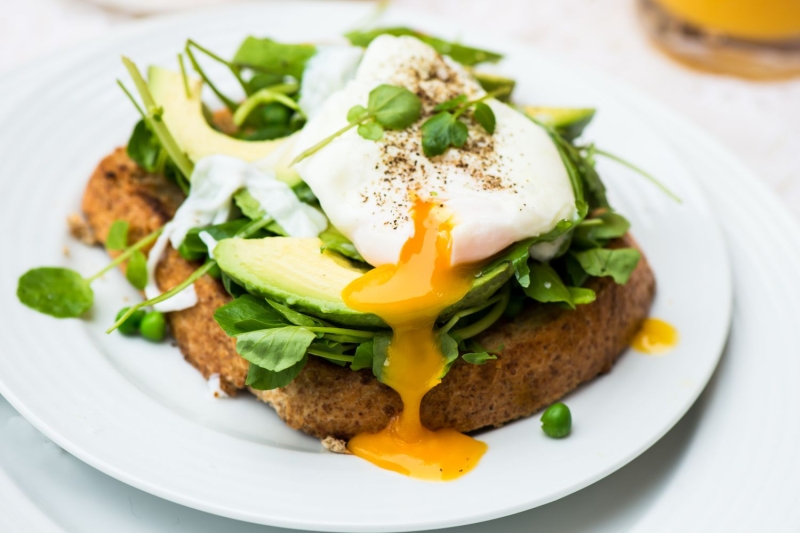Prep: 5 mins
Cook: 5 mins
Total: 10 mins
Servings: 2 servings
Yield: 4 eggs
While it’s trendy to top everything from Buddha bowls to avocado toast with fried eggs, the healthier option is to replace the fried egg with a poached one.
With only 77 calories, 6 grams of protein, and 5 grams of healthy fats, eggs pack a nutritional punch to start, but poached eggs go a step further: since they're cooked in water, they have no added fat.
Still, cooking the little marvels can intimidate even the most experienced chefs. Achieving a perfectly round shape, ensuring that the yolk is runny and the white is opaque (but not hard) seems like a job only a short-order cook could master. But it's simpler than that.
Ingredients
-
4 large eggs, at room temperature
-
1 teaspoon vinegar, or lemon juice, optional
-
1 to 2 tablespoons salt, optional
Steps to Make It
-
Gather the ingredients.
-
Fill a large, nonstick pot with water and add a teaspoon of vinegar or lemon juice and a handful of kosher salt if using.
-
Bring the water to a simmer.
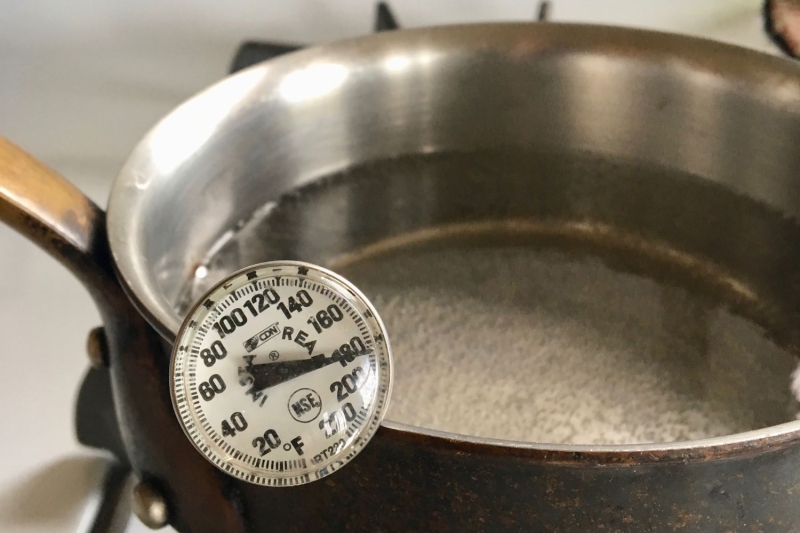
-
Crack a fresh egg into a fine strainer, then tip it into a cup, small bowl, or ramekin.
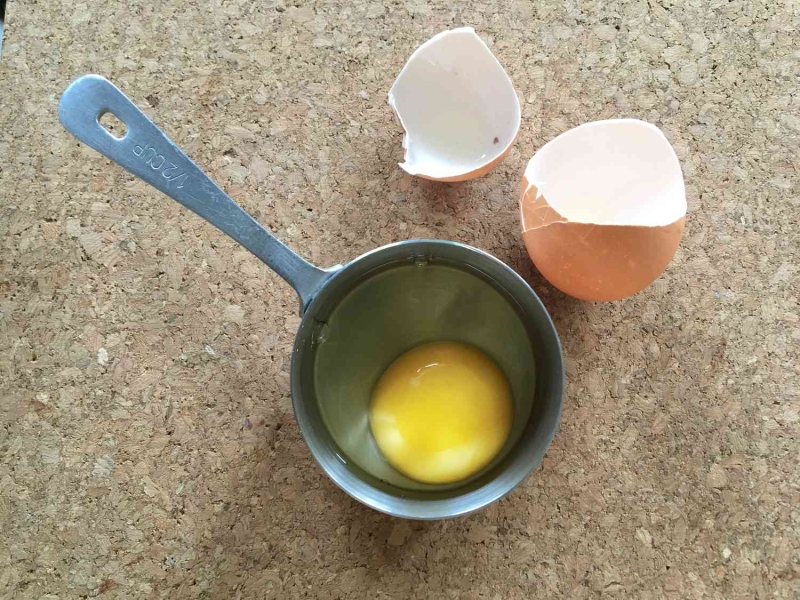
-
When the water is simmering (not boiling), gently tip the egg out of the dish and let it slide down the side of the pot and into the water.
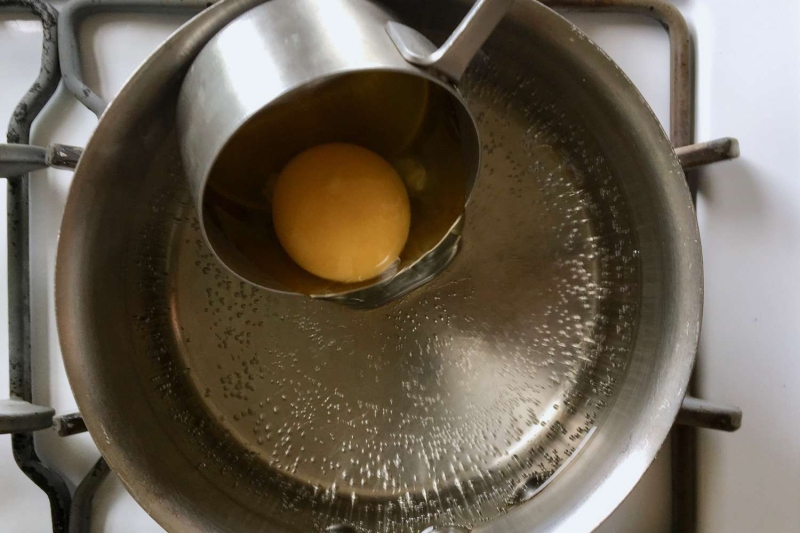
-
Cover and cook for 3 to 4 minutes or until the white is firm but still tender and the yolks are still semi-liquid.
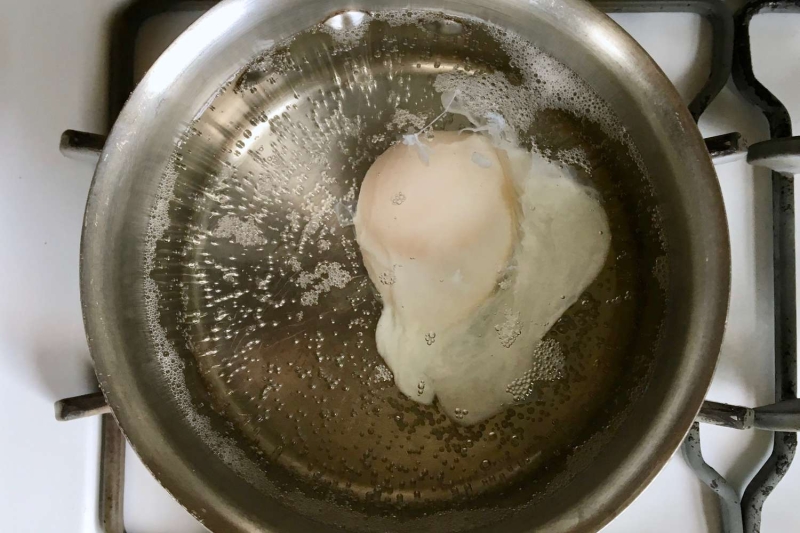
-
Carefully lift the egg from the water using a slotted spoon or ravioli skimmer.
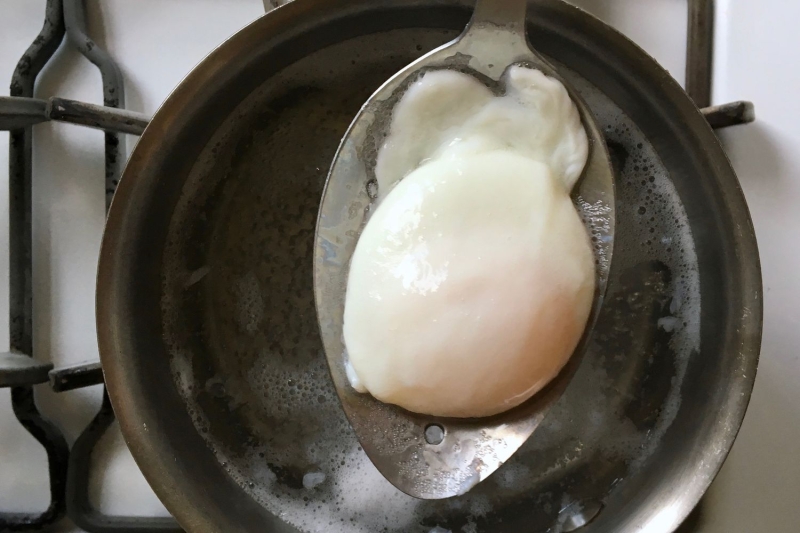
-
Shake off excess water, trim the egg as needed, and serve right away.
Tips
- The trick to making perfect poached eggs is keeping the egg compact and making sure it holds its shape. This is best accomplished by using the freshest eggs possible. The older an egg gets, the more it tends to flatten or spread out.
- Let eggs come to room temperature before poaching, as that helps them cook more evenly. Take the eggs you want to poach out of the fridge at least 30 minutes before you plan to cook them.
- If your eggs are not farm-fresh, you can add a few drops of vinegar or lemon juice to the water. The acid in the water will help the egg hold its shape.
- You also can crack the egg in a measuring cup then pour it into the water; this will help prevent any eggshells from dropping into the water.
- While cooking the egg, the water should be simmering, not boiling. Too vigorous a boil will break up the eggs. But if the water’s not hot enough, the egg might fall apart before it cooks. The ideal water temperature for poaching eggs is around 180 F to 190 F.
- If you’re poaching more than one batch, poached eggs can be kept in warm water until all are cooked, then “dry” them with paper towel right before serving.
- To poach eggs in advance, slip the poached eggs into a bowl of cool water. Refrigerate for up to 24 hours. To reheat, place the eggs in hot water for about 10 minutes. Drain well before serving.
Serving Suggestions
- Poached eggs are most often served plain or on buttered toast. Salt, pepper, and hot sauce are excellent accompaniments, as are salsas and chutneys of all sorts.
- For a slightly more elegant presentation, melt butter in a frying pan, add some freshly chopped herbs and add poached eggs just to warm them up. Serve immediately.
- Poached eggs also make a flavorful, protein-rich addition to soups and stews. They can also turn a simple salad into a meal, as with the classic French bistro favorite of a frisée salad with shallot vinaigrette, crumbled bacon, and a poached egg on top.
| Nutrition Facts | |
|---|---|
| Servings: 2 | |
| Amount per serving | |
| Calories | 143 |
| % Daily Value* | |
| Total Fat 10g | 12% |
| Saturated Fat 3g | 16% |
| Cholesterol 372mg | 124% |
| Sodium 142mg | 6% |
| Total Carbohydrate 1g | 0% |
| Dietary Fiber 0g | 0% |
| Total Sugars 0g | |
| Protein 13g | |
| Vitamin C 0mg | 0% |
| Calcium 56mg | 4% |
| Iron 2mg | 10% |
| Potassium 138mg | 3% |
| *The % Daily Value (DV) tells you how much a nutrient in a food serving contributes to a daily diet. 2,000 calories a day is used for general nutrition advice. | |
